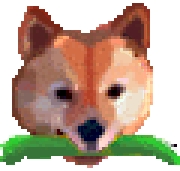 About the Farm
About the Farm
FoxDog Farm is a family owned farm which, until we retired in 2018, grew and sold vegetables, herbs, and flowers using organic methods. We still grow those vegetables, but in much smaller amounts for our personal use. We also have Nigerian Dwarf goats, and chickens. If you live near Kingston WA you might see us working as you drive by (we are on Miller Bay Rd, about 1/2 mi. south of Kountry Korner).
The farm began as a dream. When Rikke Giles (see below) lived in England for several years back in the 1980s and early 1990s she became attuned to both the organic food movement and the horrible conditions under which factory farming of meat and milk animals takes place in the UK, Europe and the United States. She dreamed of being able to raise her own wholesome food with respect for the environment, the plants, and the animals that provide that food.
Starting a farm, a huge step in reality, began with small steps such as growing herbs, vegetables and even corn in pots on the balcony of her flat in Philadelphia. Eventually she moved back home to the Pacific Northwest and obtained a bit of land. That bit of land, with much hard work by both Rikke and her partner (now husband!), Randy Wagner, has become FoxDog Farm. FoxDog Farm is still organic, even after Rikke and Randy retired from selling produce, and FoxDog animals are raised humanely, naturally, and with kindness and love.
 About the FoxDog Farm Goats
About the FoxDog Farm Goats
Our herd is officially called the 'FoxDog Stampede'. We started with goats back in 2003, obtaining 5 young goats as brush eaters. We soon realized that our goats made excellent milkers and switched over to milk production. We now have a steady herd of approx. 20 goats. When we were breeding them, more would arrive in kidding season, of course. We do not breed goats anymore; accidents happen sometime though! If you are interested in goats, check out our goat webpages.
 Why We Live Like This
Why We Live Like This
First, we'd probably better define what we mean by 'this'. We mean doing agriculture the hard way, even harder than most. We mean doing most of it by hand, with amendments we make or obtain ourselves. We mean keeping the farm deliberately small. We mean studying past agricultural techniques and learning what we can from them. So yea, why do we do that?
Because it's best for us and for the environment. Neither Rikke nor Randy feel comfortable being a 'boss'. We would never hire full time employees. That automatically limited our growth potential. And we're ok with that. We take great pride in the fact that when we ran the CSA we fed up to 100-150 mouths a year. Two people feeding 100-150 is not a bad ratio.
Rikke is a very strong environmentalist, although reality has tempered that to a degree. Ask her about her youth and getting beat up by fox hunters, for example. She and Randy both believe in raising as much of their food as possible in a humane and gentle manner. They also support humane farming with their food dollars, buying meats they can't raise themselves from other small farmers who know their animals' names.
 Agriculture in the Past
Agriculture in the Past
Rikke is by training an anthropologist and archaeologist. Randy was very interested in Medieval re-enactment. The two, together, lead to an insatiable desire to know how farming was done in the past.
The typical viewpoint of past farming is a hard scrabble life, dusty, difficult, near starvation. That viewpoint has some merit, for some limited periods of time. Other times it was too wet, or just right, or full of abundance. We Americans see the black and white pictures from the Dust Bowl and Depression of the late 1920s and 1930s and think life was always that way (BTW for a somewhat surprising but really edifying view of this time period, look at the Kodachrome pics and slides taken at the time. Suddenly all the darkness and despair is just... color). But it wasn't. People were writing treatises about farming from Roman times or earlier, and farming techniques changed and grew (or contracted) all through history. Life, then and now, varied in intensity of difficulty and ease.
